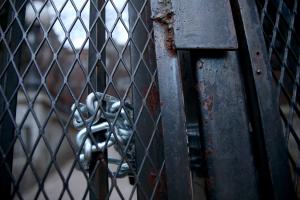This story was produced as part of a joint effort among Spotlight PA, LNP Media Group, PennLive, PA Post, and WITF to cover how Pennsylvania state government is responding to the coronavirus. Sign up for Spotlight PA’s newsletter.
HARRISBURG — The state Supreme Court has extended a moratorium on evictions, providing much-needed — though temporary — relief for tenants, many of whom owed rent Wednesday for the first time since the state reported its first coronavirus cases.
To stem the spread of the virus, Gov. Tom Wolf has issued a stay-at-home order until April 30 and shut down businesses that aren’t “life-sustaining,” creating an unprecedented surge in unemployment claims.
So far, more than 890,000 Pennsylvanians have filed for relief. With many unable to pay their bills, advocates and public defenders are bracing for a surge in evictions.
“It’s definitely going to get worse,” said Rosamaria Cristello, head of the Pittsburgh-based Latino Community Center. “Many of our families are scared because they are losing their jobs.”
The Supreme Court order issued Wednesday extends the statewide judicial emergency and court closures to April 30, prohibiting evictions until after that point.
There are an estimated 1.5 million renter-occupied housing units in the state, according to 2018 Census Bureau data. In 2016 alone, there were more than 29,000 evictions in Pennsylvania, with Philadelphia and Erie cracking the top 100 among large cities nationwide, according to the Eviction Lab at Princeton University.
In theory, all landlords who don’t get a rent payment from their tenants can initiate the eviction process as soon as the courts reopen, said Rachel Garland, managing attorney of the housing unit at Community Legal Services in Philadelphia.
Community Legal Services and the city’s tenant hotline have received an increased number of calls, with tenants asking what they should do if they can’t pay their rent, Garland said. So far, the state has done little to help answer that question.
The state Department of Banking and Securities suggested that people who can’t pay their rent due to a loss of income or illness should contact their landlords to work out a plan for their payment. Evictions are costly for landlords, so it is often more cost-effective to work out an agreement, Garland said.
“We just need time,” Garland added. “We just need to buy time. We don’t even have time for the safety net to go into place, much less for [the state] to go and put in additional" protections.
Cristello, who works with immigrants and undocumented people, said she’s drafted letters to landlords urging them to be flexible during the coronavirus disaster declaration. Some families, Cristello said, “are spending their last dime making sure they pay their bills on time, but I am afraid they are going to waste their final penny on rent.”
Some Pennsylvania lawmakers have proposed temporary tenant protections. Sen. Larry Farnese (D., Phila.) and Reps. Mary Isaacson (D., Phila.) and Summer Lee (D., Allegheny) are drafting a measure that would make it illegal to evict someone who is unemployed due to an emergency disaster declaration.
Rep. Elizabeth Fiedler (D., Phila.) said Monday that she and three other lawmakers are working on a bill that would freeze rent and mortgage payments for three months. Small landlords and businesses would also be offered some relief, possibly in the form of a tax credit, another lawmaker working on the legislation said.
Landlords, too, are concerned about making their mortgage payments if their tenants are unable to make rent, said Mike McKenna, president of Tabor Community Services in Lancaster, which connects people in need of affordable housing with landlords in the public and private sector.
Still, there’s pressure on landlords and mortgage companies to provide relief. In a letter Monday, Attorney General Josh Shapiro asked these groups to not let this “economic crisis contribute to the public health emergency.”
“I am urging you and your members to go beyond the Supreme Court’s order and pledge not to institute any eviction proceedings against your tenants or mortgage-holders who have been impacted by this crisis … for some additional time period after our courts are reopened for eviction proceedings,” Shapiro wrote.
A spokesperson for Shapiro said the letter is only a request and does not restrict landlords from acting when the state Supreme Court lifts its moratorium on evictions.
At least some relief for certain renters is coming from the federal stimulus package.
The $2 trillion CARES Act, signed by President Donald Trump last week, halts certain evictions for 120 days. It applies to public housing as well units funded by Section 8 vouchers or owned by landlords with federally backed loans.
That’s about 45% of renters nationwide, Dunn said. The act also includes money for rental assistance, housing vouchers, public housing, and housing for the elderly, according to the U.S. Department of Housing and Urban Development.
Additionally, mortgage lenders Fannie Mae and Freddie Mac are offering relief for some multifamily property owners who agree not to evict tenants who can’t pay rent because of the coronavirus, The Inquirer has reported.
100% ESSENTIAL: Spotlight PA provides its journalism at no cost to newsrooms across the state as a public good to keep our communities informed and thriving. If you value this service, please give a gift today at spotlightpa.org/donate.
